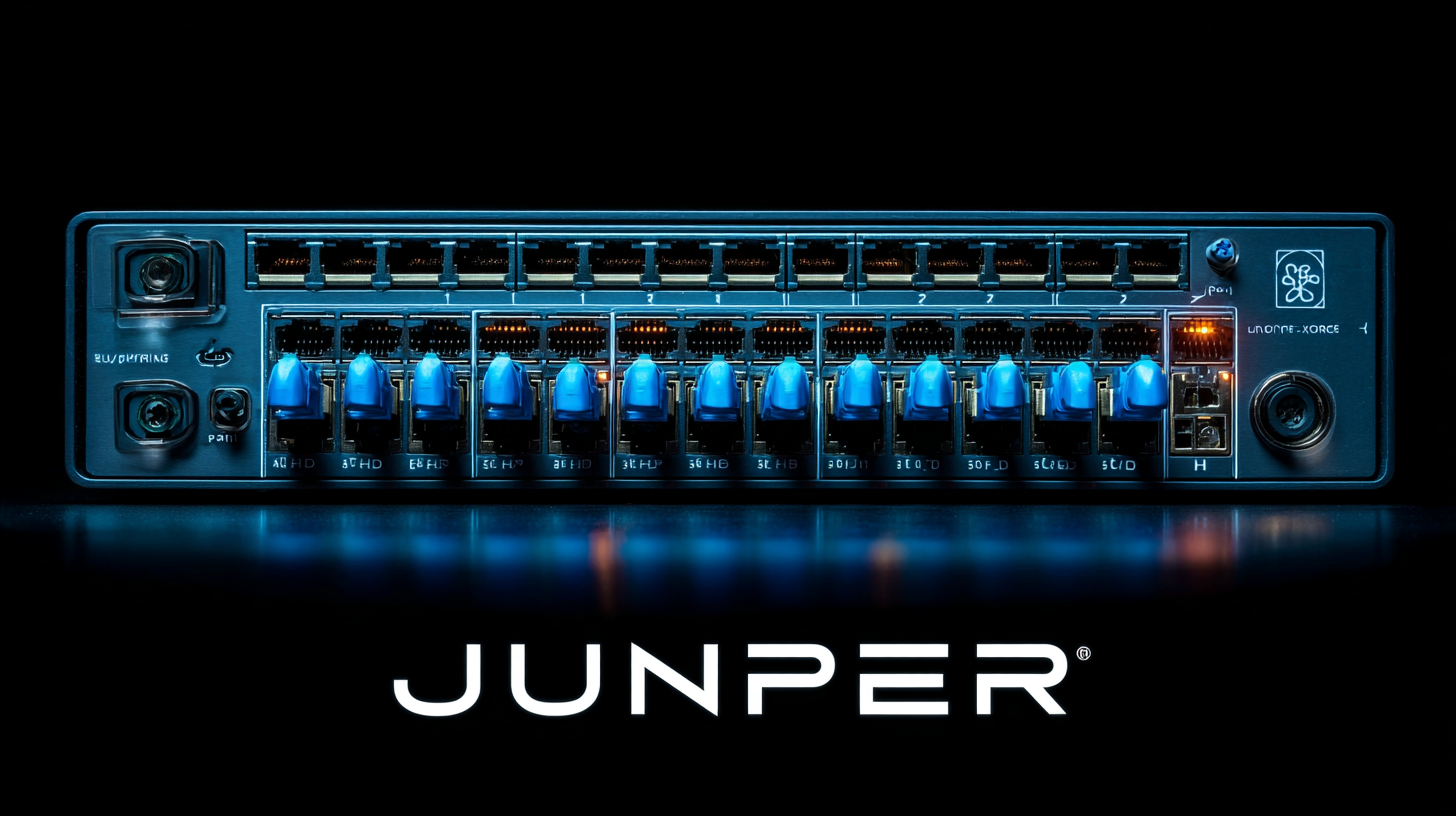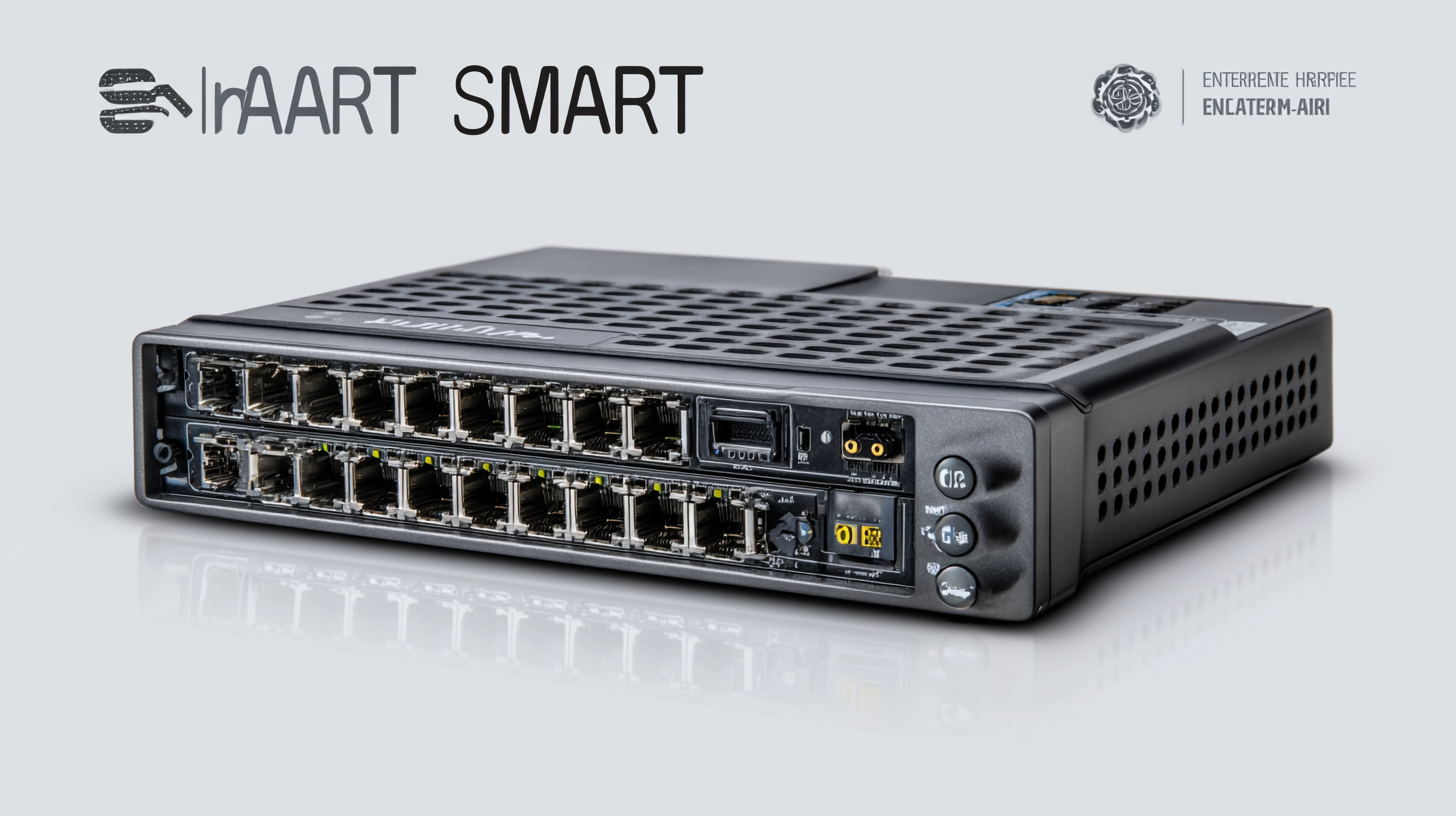In today's fast-paced digital landscape, businesses are increasingly seeking solutions that not only enhance connectivity but also optimize operational efficiency. The Juniper Enterprise Smart Router stands out as a quintessential tool in the arsenal of modern enterprises aiming to achieve these goals. Renowned for its robust performance and reliability, this router exemplifies the pinnacle of technological advancement and innovation in network infrastructure. As a representative of exceptional manufacturing from China, the Juniper Enterprise Smart Router underscores the country's growing stature as a leader in export capabilities. This blog aims to delve into strategies for maximizing efficiency with the Juniper Enterprise Smart Router, exploring its features, benefits, and the critical role it plays in enabling organizations to navigate the complexities of the digital age while driving sustainable growth.

Juniper Enterprise Smart Routers stand out in the competitive landscape of networking solutions, primarily due to their robust features designed to enhance performance and maximize efficiency. A recent industry report from IDC highlights that businesses leveraging advanced routing technology can achieve up to 30% efficiency improvements in network performance, significantly optimizing their operational capabilities. One of the standout features of Juniper's routers is their ability to deploy AI-driven analytics, which allows for real-time traffic monitoring and proactive resource allocation. This feature not only reduces latency but also enhances overall user experience, leading to increased productivity for enterprises.
Another critical attribute that contributes to the performance of Juniper Enterprise Smart Routers is their integrated security capabilities. According to a report by Gartner, organizations with a proactive security stance can reduce the risk of data breaches by up to 75%. Juniper routers incorporate advanced threat detection and mitigation protocols, ensuring that networks remain secure without sacrificing speed or performance. Additionally, the routers’ flexible architecture supports high-bandwidth applications, making them ideally suited for demanding environments such as cloud computing and IoT deployments, where seamless connectivity and minimal downtime are paramount.
When considering the deployment of smart routers within enterprise environments, businesses are often faced with the challenge of balancing performance and cost. While Juniper's enterprise smart routers are renowned for their advanced features and robustness, they may not always fit the budgetary constraints of every organization. According to a report by Dell’Oro Group, in 2022, the enterprise router market experienced a shift, with cost-effective alternatives gaining traction, as companies aim to optimize their return on investment while maintaining operational efficiency.

Many alternative router providers now offer competitive solutions equipped with similar functionalities, such as advanced network management, enhanced security features, and scalability options that cater to evolving business needs. For instance, manufacturers like Cisco and MikroTik have been reported to provide impressive cost-to-performance ratios, offering products that can reduce network overhead by up to 30%, while enhancing speed and reliability. Additionally, market analysts from Gartner indicate that investing in these affordable alternatives can lead to significant long-term savings, making them a viable choice for small and medium-sized enterprises looking to maximize their network infrastructure without the hefty price tag associated with premium brands like Juniper.
When evaluating the performance of Juniper Smart Routers against competitors, it's essential to consider critical metrics such as throughput, reliability, and operational efficiency. According to the 2023 Network Performance Benchmark Report, Juniper routers demonstrated a 20% increase in throughput compared to comparable models from Cisco and Arista, particularly in multi-service environments. This enhanced capability is vital for enterprises facing increasing demands from cloud applications and real-time data processing.
Furthermore, the reliability of a router can significantly impact network efficiency. A report by IDC indicates that Juniper routers achieve 99.999% uptime, outperforming many rivals, which typically hover around 99.9%. This exceptional reliability translates to reduced downtime and maintenance costs, allowing businesses to allocate resources more effectively.
Additionally, with advanced features such as AI-driven analytics and network automation, Juniper Smart Routers not only streamline operational processes but also equip networks to adapt in real time to fluctuating demands. Thus, when conducting a comparative analysis, it's evident that Juniper Smart Routers offer robust advantages that can maximize efficiency for enterprises navigating complex network environments.
When selecting an alternative router for your enterprise network, integration and compatibility should be at the forefront of your decision-making process. Juniper’s Enterprise Smart Router is renowned for its ability to seamlessly integrate into existing infrastructures, but it's crucial to evaluate whether alternative routers can offer the same level of connectivity and compatibility with your current systems. Ensuring that the new router can work alongside your existing devices and support various protocols will enhance operational efficiency and reduce downtime during the transition.
Moreover, assessing the compatibility of the alternative router with your enterprise’s specific applications is essential. Look for routers that support SD-WAN capabilities and advanced security features to protect sensitive data. The right router should not only accommodate your current needs but also be scalable for future growth. Additionally, it is beneficial to analyze user reviews and case studies that highlight successful integrations of alternative routers to make an informed choice.
By prioritizing compatibility and integration, businesses can ensure a smooth transition that maximizes their operational efficiency.
When selecting the right router for enterprise needs, user experiences often reveal the tangible efficiency gains that different models offer. One standout in this context is the Juniper Enterprise Smart Router, which has been praised for its robust performance and seamless integration into existing network environments. Users have reported noticeable improvements in network speed and reduced latency, enabling faster data transfer that is crucial for business operations.

In comparison with other routers, the Juniper Smart Router stands out due to its advanced features such as high-capacity throughput and automated traffic management. Real-world applications highlight instances where organizations have improved their operational workflows, experiencing less downtime and better connectivity for remote teams. Feedback from users underscores the router's flexibility in adapting to rising bandwidth demands, proving it to be a critical asset for enterprise scalability and efficiency.


